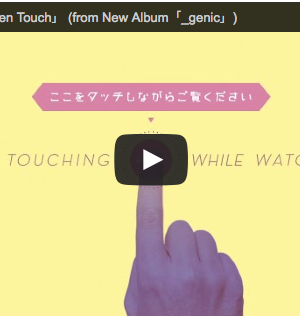One way to insulate your business from the broader fluctuations of the economy is to build customer trust.
Consumers trust business less than they did last year, according to the 2009 Edelman Trust Barometer. The survey found that trust is business in Australia is low at just 43 percent. We also have the largest gap in trust between business and government in the developed world.
The survey revealed that banks, media companies and insurance companies are the least trusted in Australia, and business is seen as being significantly responsible for the economic downturn and global warming, yet is not trusted by consumers to find a solution.
The Trust Barometer is a reminder that it’s time for business to get back to basics and to focus on restoring customer faith.
In the marketing context, trust is about giving customers confidence in the reliability and the integrity of a brand and the product or service it provides to the consumer. Trust can make or break a brand.
There are two stages to building trust with customers:
- They need to trust your brand in order to try it in the first place.
- Your brand needs to deliver on its promises for customers to continue to trust it.
Building customer trust could help your business to thrive during the economic downturn. Here are some ideas to get you started:
- Third-party endorsements or testimonials can help to build trust with your customers. It could be as simple as a thank you letter, case study or verbal reference from an existing customer. To add further credibility, consider whether you have access to any ‘personalities’, well-known businesses, academics or experts who might be interested in supporting your product or service by providing a testimonial. Use these third-party endorsements in your marketing materials like your website and company brochures.
- Media coverage can be a more powerful marketing tool than paid advertisements. Consumers generally don’t trust paid advertisements but they perceive editorial to be a more reliable source of information (although that’s not always the case). To generate media coverage you need a good story like an innovative new product or the latest research into an interesting topic. Prepare a media release covering the ‘who, what, how, when and why’ of the story and send it to a list of relevant media outlets. Remember journalists receive hundreds of media releases each day, so keep your list targeted and follow-up your story with a phone call.
- Referral marketing is one of the easiest ways to attract new business, and referrals are one of the most trusted sources of information. Referral marketing encourages, promotes and rewards clients and other people who refer a business to people they know. To develop a referral marketing plan you need to understand who could be motivated to refer a business to you and what sort of incentive would motivate them. It usually involves a small gift, discount, cash or commission to reward customers who refer your business.
- Guarantees can make trying your product or service less risky for the customer. By providing a guarantee you are demonstrating to the customer that you believe in your product as well as increasing the chance that they will try your product in the first place. Think about what results you can guarantee your product or service will deliver. Use strong words to spell out your guarantee, make sure it’s credible and keep to your promise.
- Body language can communicate your perceived trustworthiness without you even saying a word. In fact, research has shown that body language can have more impact than verbal communication. Use positive body language like eye contact to convey openness and honesty. Show customers you are listening by nodding, responding and asking open ended questions. Avoid negative body language like crossing your arms, clearing your throat or looking down towards the ground.
Finally, to state the obvious (sometimes it just has to be done), be truthful. Nothing will damage your brand more than lies – even if they are only small ones. Don’t promise something that you can’t deliver and make sure your brand is authentic.
Renee Hancock is a marketing and communications specialist whose experience spans finance, government, education, not-for-profit, telecommunications and law. She has consulted for two of Australia’s most prestigious public relations agencies and now works in-house for a leading financial services organisation.





![Do you have happy staff? 5 ways to improve performance [FREE DOWNLOAD]](https://anthillonline.com/wp-content/uploads/2016/06/chris-smith-cheatsheet-04c.pdf-Box-2016-06-30-20-45-20-300x194.png)
![Generating Web Traffic with Mark Middo and James Tuckerman [FREE REPORT]](https://anthillonline.com/wp-content/uploads/2015/08/Capture3-100x75.jpg)
![Four principles to creating dedicated customers…or zombie loyalists with Peter Shankman [Free report]](https://anthillonline.com/wp-content/uploads/2015/11/Screen-Shot-2015-11-26-at-11.16.26-100x75.png)
![Five ways to manage your time by managing yourself, with Helen Ebdon [CHEAT SHEET]](https://anthillonline.com/wp-content/uploads/2015/07/ebdon-3d-cover-01--100x75.png)
![The Ultimate Social Media Almanac with James Tuckerman [Cheat Sheet]](https://anthillonline.com/wp-content/uploads/2015/11/Screen-Shot-2015-11-26-at-11.24.55-100x75.png)
![Four Page Digital Marketing Strategy [FREE RESOURCE]](https://anthillonline.com/wp-content/uploads/2015/01/FOUR-PAGE-IMAGE-100x75.png)

![To Boldly Go with Star Walk 6.0 [VIDEO]](https://anthillonline.com/wp-content/uploads/2012/09/star-trek-screen.jpg)
![How to win clients… in less than 11 minutes [VIDEO]](https://anthillonline.com/wp-content/uploads/2010/11/siimon_reynolds_255.jpg)

![How to build a retail empire with James Webber [FREE REPORT]](https://anthillonline.com/wp-content/uploads/2015/06/james-webber-instagram-memes-01-300x194.jpg)
![Instagram for Business… in 12 steps [FREE INFOGRAPHIC]](https://anthillonline.com/wp-content/uploads/2015/08/Capture7-100x75.jpg)
![Networking is for suckers… master Inbound Marketing [FREE REPORT]](https://anthillonline.com/wp-content/uploads/2015/03/inboundreloaded-100x75.png)
![Need cash for your startup or innovation? Here’s the Ultimate Grant Guide for Innovators and Startups [FREE DOWNLOAD]](https://anthillonline.com/wp-content/uploads/2015/10/INNOVATORS-GRANT-GUIDE-NFSU-page-spread-100x75.png)
![New Zealand’s Xero eyes US IPO, further disruption as subscribers increase [INFOGRAPHIC]](https://anthillonline.com/wp-content/uploads/2014/07/sruuuuujana-212x194.png)
![Ever wonder if your ‘content marketing’ is really just crap? You gotta see this! [INFOGRAPHIC]](https://anthillonline.com/wp-content/uploads/2014/08/content-100x75.jpg)
![7 Business Lessons From Game of Thrones [INFOGRAPHIC]](https://anthillonline.com/wp-content/uploads/2014/10/infographic-games-of-thrones-041-100x75.jpg)
![How to build your own Media Empire… In seven steps with Nathan Chan [INFOGRAPHIC]](https://anthillonline.com/wp-content/uploads/2014/10/Nathan-Chan-Infographic-e1413419529176-100x75.jpg)
![5 Business Lessons From Tinder [INFOGRAPHIC]](https://anthillonline.com/wp-content/uploads/2014/10/Tinder-Elegant-Infographic-100x75.jpg)



